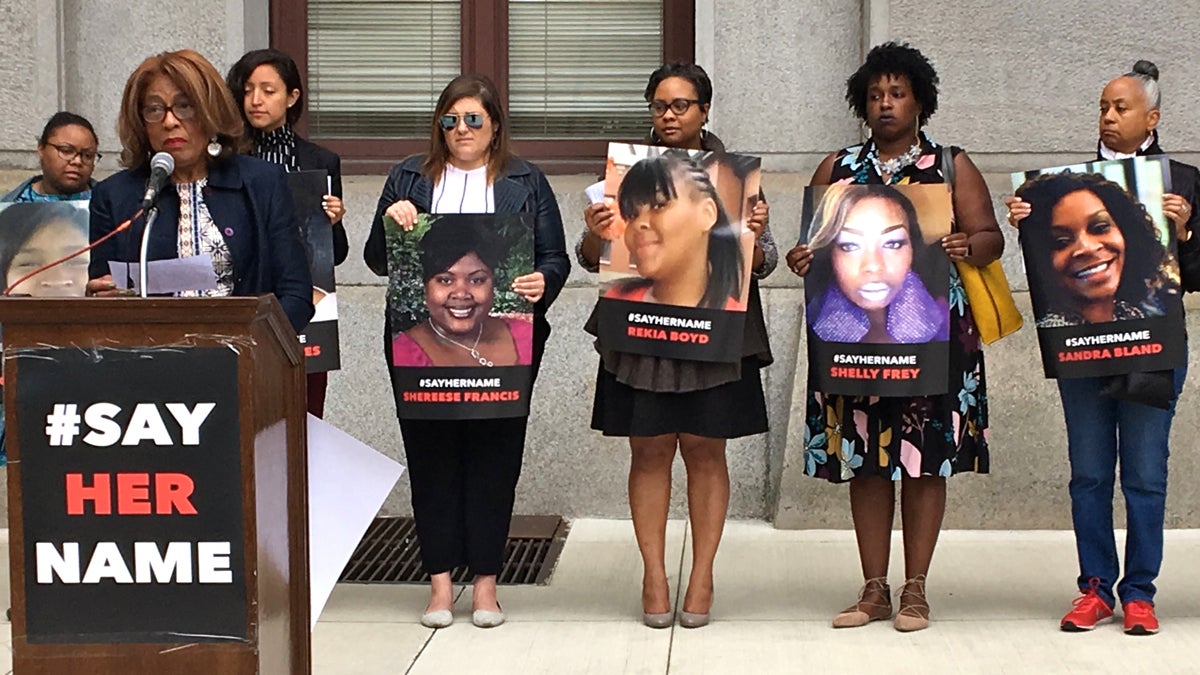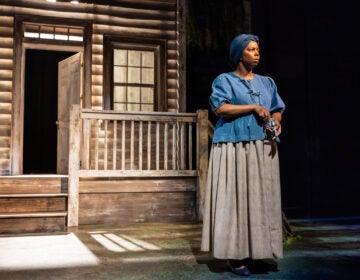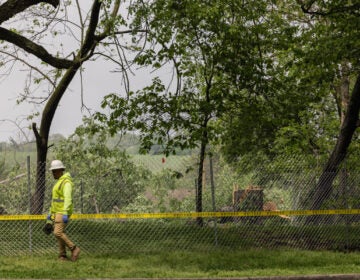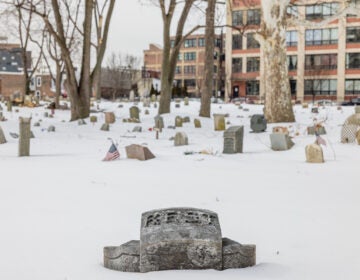Gathering to ‘Say Her Name,’ Philly activists honor women of color brutalized by police

Representatives of the "Say Her Name" movement demonstrate against police brutality at City Hall. (Danielle Fox/WHYY)
A few dozen women gathered at Philadelphia City Hall Wednesday to say the names of women of color who have lost their lives at the hands of police. It was a local version of the “Say Her Name” demonstrations that have cropped up across the country.
Event organizer Dawn Chavous said that she can easily recall the names Freddie Gray and Eric Garner. But the names of African-American women killed during interactions with police often go unheard.
“I knew about so many other men who had lost their lives, and I didn’t know that this was an issue that was impacting women as well,” she said.
After watching a TED talk from Kimberlé Crenshaw, the woman who launched the Say Her Name movement and coined the term “intersectionality,” Chavous wanted to take action in Philadelphia right away.
“I said, ‘Why don’t we do something now?’ You know, we don’t have to wait for Women’s History Month. We don’t have to wait for another person to die,” she said. “Let’s do something now.”
The event features pictures of women of color who lost their lives in violent interactions with authorities. Protesters shared the stories of these women and together said their names.
City Councilwoman Blondell Reynolds Brown and Jovita Hill, the executive director of the Philadelphia Commission for Women, were among the participants.
“It kind of comes out in the news, and then it kind of goes away,” said attorney Courtney Richardson. “But for the impact that it causes on our lives, whether it’s your family member or someone you’re connected to or even just in terms of your personal safety … because we don’t feel safe.”
Richardson read the name of Gynnya McMillen, a 16-year-old from Kentucky who died in police custody in 2016. She hopes the event will encourage more conversations in the community, with lawmakers, and at City Hall.
“I think it’s so important that we have these conversations and that people understand that when you see a police officer, you don’t get this warm and fuzzy feeling about safety,” she said.
Chavous wanted the event to highlight how state violence disproportionately affects women of color, but also stressed she is not out to bash police.
“I do respect that police are protecting our streets,” she said. “But I do think that we need to raise the social consciousness of all of us in making sure that, if people are not doing their jobs correctly, if people are dying, then we need to look at the systematic approach of how we’re handling instances and occurrences where people are engaged by police.”
She hopes that those at the event will pay the knowledge forward by raising awareness, taking action, and remembering the names of the women — and the lives they lived.
WHYY is your source for fact-based, in-depth journalism and information. As a nonprofit organization, we rely on financial support from readers like you. Please give today.





